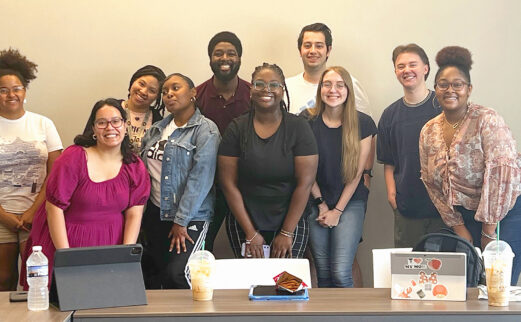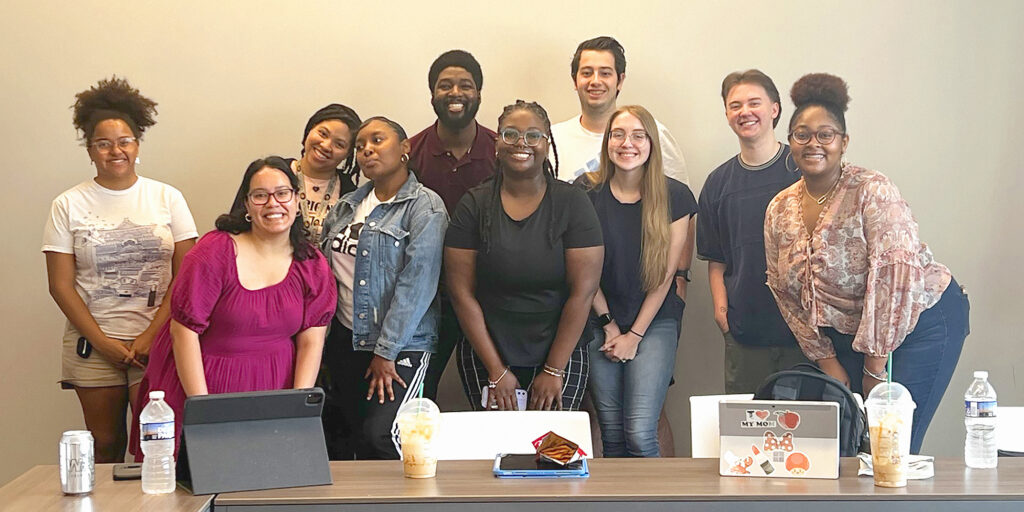


The 2022–23 academic year marked the second year for the University of Tennessee’s Summer Bridge Program, administered by the Department of History to provide resources, mentoring, and support to students from historically excluded and underrepresented backgrounds who are interested in pursuing a graduate degree in history. Upper-division history majors, recent graduates, and master’s degree graduates from any college or university are invited to apply, as well as those in history-adjacent majors such as Africana studies and Latin American studies. The Department of History covers all costs for travel, meals, and accommodation, and offers participants a $250 stipend.
The program offers a series of workshops that introduce students to the expectations of history graduate programs, and it encourages students to imagine themselves working in careers in and beyond academia. Workshops focus on such topics as career options, networking, developing a research agenda, and the application process. Students leave the program with an academic network, faculty mentors, and new skills that make them better prepared for the graduate application process. Summer Bridge has drawn participants from academic institutions throughout Tennessee and in Iowa, Kentucky, Louisiana, North Carolina, Ohio, Texas, and Virginia.
Last year, the two faculty members in charge of the program—Professors Sara Ritchey and Brandon Winford—enlisted me, as the subject specialist librarian for history, to instruct students in the use of the UT Libraries’ databases and other digital resources. After receiving high praise and positive feedback on those efforts, Ritchey and Winford invited me to join the planning committee and serve as a consultant on the research sections of the program. The new position enabled me to structure the research sections to be more accessible by using instructional scaffolding strategies, which break up information into manageable parts with each unit building on the preceding lesson. I restructured not only my own sessions but the program’s entire curriculum.
This year’s Summer Bridge Program received even better feedback than last year’s. One question on the exit survey asked how to improve the program, and the unanimous response was that participants wanted more time in the library with the history librarian.
This year, my sessions included “Thinking about Your Research Interests,” in which I guided students through a process of following their interests to discover research topics. A group activity led students through what they knew about their proposed topics and what they would like to research. The students liked having an opportunity to get their thoughts on paper and exchange ideas with other participants from different educational backgrounds. By the time they met with the history faculty later that day, they were much more confident about talking through their proposed research topics.
My second session was “Library Resources: What Are They For and How Can They Help You?” It assisted the participants—who by this time had a firmer grasp on their research topics—in understanding how to use UT Libraries’ resources to start and continue their research. I ran sample searches in the databases so students could observe and ask questions.
For next year, the planning committee plans to incorporate even more library time and instruction. Other possibilities under exploration include expanding the program to reach students in more states and instituting peer mentorships.
Learn more about the Summer Bridge Program at tiny.utk.edu/HistoryBridge.